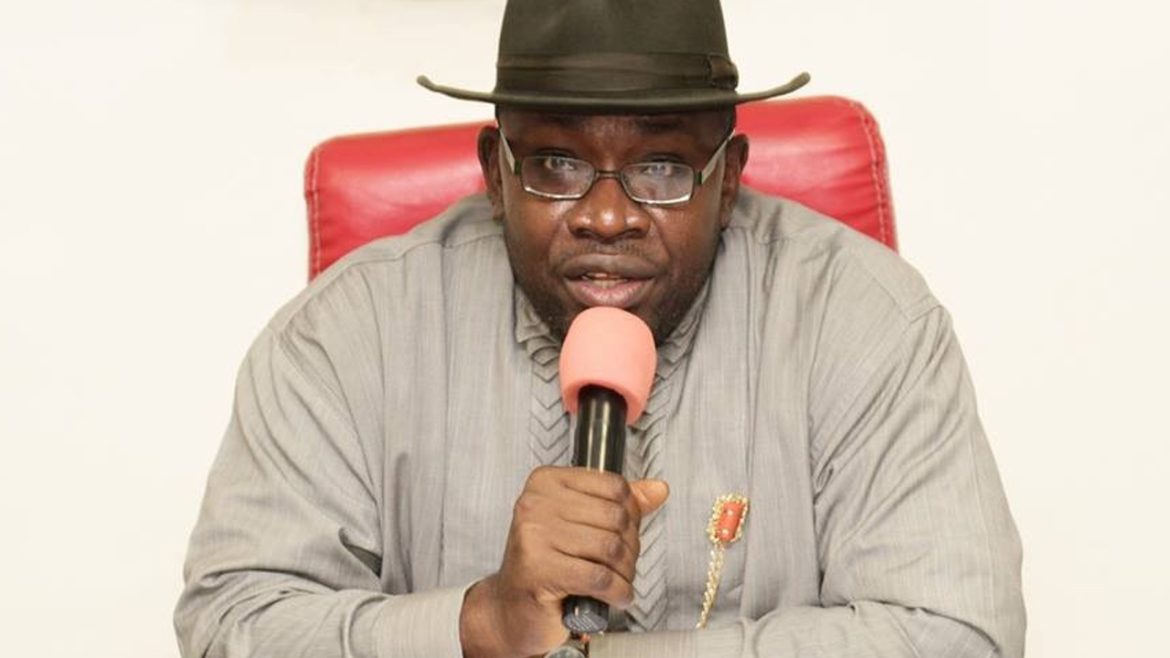513
By Myke Agunwa
Senator representing Bayelsa West at the National Assembly, Sen. Seriake Dickson has condemned President Bola Tinubu’s silence on the Rivers State democratic disruption during his Democracy Day speech on June 12, 2025 at the National Assembly, Abuja.
The former governor of Bayelsa State, who described the President’s silence as a grave oversight, accused him of institutionalizing undemocratic practices in Rivers State and at the same time eulogizing the benefits of democracy.
The lawmaker accused the Tinubu administration of trying to provide federal legitimacy to what he described as “unconstitutional governance” in Rivers State. He warned that such moves erode the democratic foundations of the country, particularly on a day meant to commemorate Nigeria’s hard-won democratic gains.
Speaking to journalists after the joint session of the National Assembly with the President, Dickson expressed deep concern that President Tinubu did not acknowledge what he called a “constitutional aberration” in Rivers State. He noted that the failure to address the political tensions in the state contradicts the very ideals that June 12 represents.
“Democracy is supposed to inspire hope,” Dickson stated. “But what we saw today in the Senate was a direct assault on that hope. The President’s speech ignored one of the most serious constitutional issues facing the country right now.”
Dickson was outraged by a communication from the President concerning the situation in Rivers State, which was read by Senate President Godswill Akpabio during the plenary session. He said that his attempt to raise a constitutional point of order following the reading was deliberately blocked.
“My right as a Senator to raise a constitutional issue was completely disregarded,” Dickson said. “The Senate President rushed through the President’s message and ignored my intervention. That’s not how democracy works. That’s how military regimes operate.”
“It’s deeply ironic that on a day meant to celebrate the triumph of civil authority, the Senate is endorsing actions that undermine the Constitution,” he said. “Why read this communication today, of all days, if not to send a chilling message about federal overreach?”
Dickson added that while the President’s Democracy Day speech was well written, it failed to reflect the political realities faced by ordinary Nigerians, especially in Rivers State. According to him, the President’s eloquence rings hollow when fundamental democratic principles are ignored.
“You cannot preach democracy and practice autocracy,” he asserted. “President Tinubu’s speech was beautifully written, but his silence on Rivers betrays a troubling disregard for the rule of law.”
Rejecting any claims that his comments were politically motivated, Dickson emphasized that his position was based on constitutional concerns, not partisan politics.
“This is not about Governor Fubara. It is not about political parties. It is about the people of Rivers State and the survival of democracy in Nigeria,” he explained. “If Rivers can be treated this way today, what stops it from being Lagos or Kano tomorrow?”
He drew parallels between the political tension in Rivers and the controversial conduct of federal forces during the 2023 general elections in Lagos, describing both as examples of an emerging pattern of repression. According to Dickson, these developments suggest a broader federal strategy to suppress opposition and centralize power.
“What we saw in Lagos during the elections was a blatant power grab. What’s happening in Rivers now is the continuation of that trend. We are sliding into a dangerous place where federal might is used to subvert local democracy.”
Dickson concluded by calling on all Nigerians to rise in defense of democratic values, regardless of their political or ethnic backgrounds. He warned that failing to act now could jeopardize the democratic freedoms that Nigerians have fought hard to achieve.
“This is not just about one state or one governor. This is about our collective future,” he declared. “The struggle of June 12 wasn’t just about voting — it was about dignity, justice, and the voice of the people. We must not betray that legacy.”



